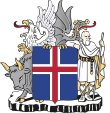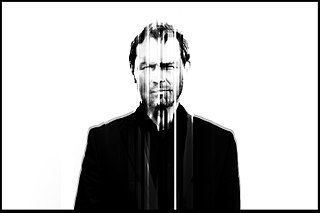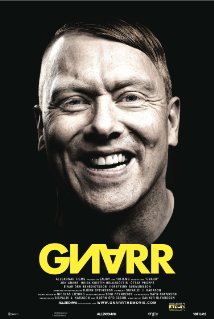| ||
 |
|---|
The Icelandic municipal elections of 2010 were held on 29 May in that year to elect the municipal councils of Iceland.
| ||
 |
|---|
The Icelandic municipal elections of 2010 were held on 29 May in that year to elect the municipal councils of Iceland.
| Party | Seats | +/– | |
|---|---|---|---|
| Independence Party | 117 | -13 | |
| Progressive Party | 51 | +6 | |
| Social Democratic Alliance | 42 | +7 | |
| Left-Green Movement | 15 | +1 | |
| Best Party | 6 | New | |
| Liberal Party | 1 | -2 | |
| Other party lists | 186 | -23 | |
| Independents | 94 | +1 | |
| Total | 512 | -17 | |
| Source: Statistics Iceland, Statistics Iceland | |||
A new political party called The Best Party (Besti flokkurinn) won the most seats on the council, defeating the established parties.
The Best Party led in the polls in the run up to the election with one survey showing they could win a majority on their own. [1] [2] Among the policies in the party's "best manifesto" were plans for a polar bear for the city's zoo, a Disneyland at Reykjavík Airport, palm trees on the waterfront and free towels at swimming pools. [2] [3] However the leader of the Best Party, comedian Jón Gnarr, said that his party, which had only been founded in November 2009, [2] was serious and his campaign manager said they wanted "to take a stand against a system that is completely ruined". [3]
Political analysts saw the strong support for the Best Party being due to the economic crisis that had taken place since 2008, which had led voters to lose confidence in the traditional political parties. [1] Meanwhile, other politicians called on voters to get serious and avoid putting the city in the "hands of clowns" during a time of economic difficulty. [4] As the election neared a poll showed the Best Party dropped slightly while remaining ahead, with the Independence Party rising, making it unlikely that the Best Party would win a majority. [5]
The results saw the Best Party become the largest party on the council with 6 of the 15 seats, but short of a majority. [6] They defeated the Independence Party of incumbent mayor Hanna Birna Kristjánsdóttir into second place with 33.6% of the vote, compared to 34.7% for the Best Party. [6] The results were described as "a shock" by the Icelandic Prime Minister Jóhanna Sigurðardóttir, with the leader of the Best Party, Jón Gnarr saying he should now become mayor of Reykjavík. [7]
Gnarr formed a coalition with the Social Democrats and was mayor until June 16, 2014.
| Party | Votes | % | Seats | +/– | |
|---|---|---|---|---|---|
| Best Party | 20,666 | 34.72 | 6 | New | |
| Independence Party | 20,006 | 33.61 | 5 | –2 | |
| Social Democratic Alliance | 11,344 | 19.06 | 3 | –1 | |
| Left-Green Movement | 4,255 | 7.15 | 1 | –1 | |
| Progressive Party | 1,629 | 2.74 | 0 | –1 | |
| Reykjavík Candidacy List | 681 | 1.14 | 0 | New | |
| List of Candidates for Honesty | 668 | 1.12 | 0 | New | |
| Liberal Party | 274 | 0.46 | 0 | –1 | |
| Total | 59,523 | 100.00 | 15 | 0 | |
| Valid votes | 59,523 | 94.45 | |||
| Invalid/blank votes | 3,496 | 5.55 | |||
| Total votes | 63,019 | 100.00 | |||
| Registered voters/turnout | 85,808 | 73.44 | |||

Reykjavík is the capital of, and largest city in Iceland. It is located in southwestern Iceland, on the southern shore of Faxaflói Bay. With a latitude of 64°08′ N, the city is the world's northernmost capital of a sovereign state. Reykjavík has a population of around 140,000 as of 2023. The Capital Region has a population of around 248,000.

Einar Örn Benediktsson, often billed as Einar Örn, is an Icelandic popular music singer and trumpet player. He was a member of the Sugarcubes. He served as a member of the Reykjavík City Council between 2010 and 2014.

Davíð Oddsson is an Icelandic politician, and the longest-serving prime minister of Iceland, in office from 1991 to 2004. From 2004 to 2005 he served as foreign minister and as the chairman for the Independence Party from 1991 to 2005. Previously, he was Mayor of Reykjavík from 1982 to 1991, and he chaired the board of governors of the Central Bank of Iceland from 2005 to 2009. The collapse of Iceland's banking system led to vocal demands for his resignation, both from members of the Icelandic public and from the new Icelandic Prime Minister Jóhanna Sigurðardóttir, which resulted in his being replaced as head of the Central Bank in March 2009. In September 2009 he was hired as the editor of Morgunblaðið, one of Iceland's largest newspapers, a decision that caused nationwide controversy and was followed by resignations and widespread terminated subscriptions. He contested the election for President of Iceland on 25 June 2016 but lost to Guðni Jóhannesson, coming in fourth place with 13.7% of the popular vote.

The Social Democratic Alliance is a social democratic political party in Iceland. The party is positioned on the centre-left of the political spectrum and their leader is Kristrún Frostadóttir, who has been leader since 2022, and has served as Prime Minister of Iceland since 21 December 2024.

The Progressive Party is an agrarian political party in Iceland.

Jón Gnarr is an Icelandic actor, comedian, and politician who served as the Mayor of Reykjavík from 2010 to 2014. He is currently a member of the Althing for Viðreisn, elected in the 2024 Icelandic parliamentary election.
Iceland elects on a national level a mostly ceremonial head of state—the president—and a legislature. The president is elected for a four-year term by the people. The parliament has 63 members, elected for a four-year term by proportional representation using the D'Hondt method with a closed list. Iceland has a multi-party system, with numerous parties in which no one party typically has a chance of gaining power alone which typically results in a hung parliament, so parties must work with each other to form coalition governments.

Dagur Bergþóruson Eggertsson is an Icelandic politician who was the Mayor of Reykjavík from 2007 to 2008 and again from 2014 to 2024. He was the vice-chairman of the Social Democratic Alliance from 2009 until 2013. He was first elected to the city council of Reykjavík in a 2002 election and became the mayor on 16 October 2007. Dagur is formally educated as a physician but also has a master's degree in Human Rights and International Law from the University of Lund in Sweden.

The 2009–2011 Icelandic financial crisis protests, also referred to as the Kitchenware, Kitchen Implement or Pots and Pans Revolution, occurred in the wake of the Icelandic financial crisis. There had been regular and growing protests since October 2008 against the Icelandic government's handling of the financial crisis. The protests intensified on 20 January 2009 with thousands of people protesting at the parliament (Althing) in Reykjavík. These were at the time the largest protests in Icelandic history.

Katrín Jakobsdóttir is an Icelandic politician who served as the prime minister of Iceland from December 2017 to April 2024 and was a member of the Althing for the Reykjavík North constituency from 2007 to 2024.

The Best Party was an Icelandic political party founded by Jón Gnarr on 16 November 2009. The party contested the 2010 city council election in Reykjavík and won a plurality on the Reykjavík City Council, receiving 34.7% of the vote, defeating the Independence Party which received 33.6%. It was an observer member of the International Pirate Party, but not associated with the Pirate Party Iceland. Gnarr announced that the party was to be dissolved after he stepped down as mayor after the upcoming local elections in May 2014. Many of the Best Party's members joined Bright Future, although Gnarr himself stopped political participation.
Municipal elections were held in Milan on 15–16 and 29–30 May 2011 to elect the Mayor and the 48 members of the City Council, as well as the nine presidents and 359 councillors of the nine administrative zones in which the municipality is divided.

Parliamentary elections were held in Iceland on 27 April 2013. Fifteen parties contested the elections, compared to just seven in the previous elections. The result was a victory for the two centre-right opposition parties, the Independence Party and Progressive Party, which subsequently formed a coalition government. The parties were eurosceptic and their win brought to a halt partially completed negotiations with the European Union regarding Icelandic membership.

Gnarr is a 2010 Icelandic documentary film directed by Gaukur Úlfarsson. The film follows the political campaign of Jón Gnarr, a former punk rocker with no background in politics that formed his own party – the Best Party – and became the mayor of Reykjavík.

The Pirate Party is a political party in Iceland. The party's platform is based on pirate politics and direct democracy. The party was founded on 24 November 2012 and ran for the first time in the 2013 parliamentary election.
The post of Mayor of Reykjavík was created in 1907 and advertised in 1908. Páll Einarsson and Knud Zimsen applied for the job and Páll got the position for a period of six years, at the end of which he did not wish to renew his tenure. Rather than a direct election, Reykjavík City Council members elect the mayor from within their ranks.
Heiða Kristin Helgadóttir is an Icelandic politician and entrepreneur. She founded and led two political parties: the Best Party and Bright Future.
An Icelandic Constitutional Council (Stjórnlagaráð) for the purpose of reviewing the Constitution of the Republic was appointed by a resolution of Althingi, the Icelandic parliament, on 24 March 2011. Elections were held to create a Constitutional Assembly (Stjórnlagaþing) body, but given some electoral flaws, had been ruled null and void by the Supreme Court of Iceland on 25 January 2011, leading the parliament to place most of the winning candidates into a Constitutional Council with similar mission. The question of whether the text of the proposed constitution should form a base for a future constitution was put to a non-binding referendum, where it won the approval of 67% of voters. However, the government's term finished before the reform bill could be passed, and following governments have not acted upon it.

Municipal elections took place in Iceland on 31 May 2014. 66% of eligible voters cast votes, the lowest proportion since Iceland gained independence.

Parliamentary elections were held in Iceland on 30 November 2024 to elect the 63 members of the Althing. The centre-left Social Democratic Alliance, led by Kristrún Frostadóttir, outperformed the ruling Independence Party to win the most seats, at 15. The election saw the worst performance by the Independence Party, Progressive Party, the Left-Green Movement, and the Pirate Party in each of the parties' histories, while Viðreisn, the People's Party, and the Centre Party saw their best performance in each of the parties' histories. This follows a trend of Icelanders voting against every post–2008 recession government except during the 2021 election.